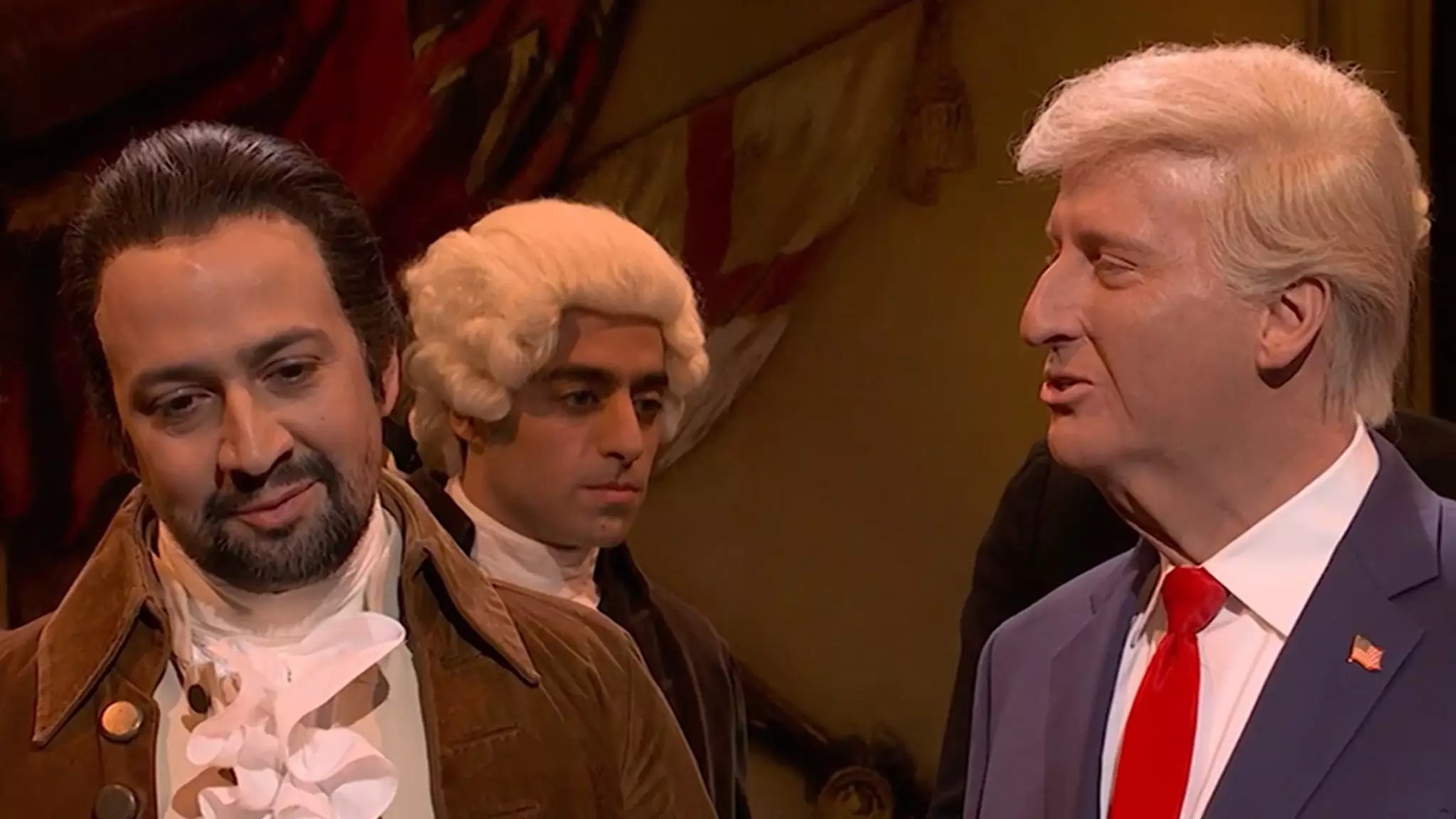Lin-Manuel Miranda’s “Hamilton” has emerged as one of the most celebrated musicals in recent history, redefining the landscape of American theater and pop culture. Blending hip-hop with traditional musical theater formats, Miranda has crafted a narrative that not only chronicles the life of founding father Alexander Hamilton but also speaks to contemporary issues of race, identity, and governance. Given its overwhelming success, one cannot overlook how “Hamilton” serves as a reflection of current socio-political climates, particularly as these intersect with the tumultuous tenure of former President Donald Trump.
In an era increasingly characterized by political polarization, the satirical lens of “Saturday Night Live” (SNL) has critically influenced public discourse. The program’s ability to blend humor with sharp political commentary manifests brilliantly in its cold opens, where cultural landmarks are often parodied to critique current events. In a recent segment featuring Lin-Manuel Miranda, the joyous celebration of freedom and democracy inherent in “Hamilton” clashes humorously with Trump’s authoritarian quips, such as his jest about being in his “king era.” This cheeky tone underscores the complexity of American ideals in contrast to the political reality under Trump’s leadership.
One of the most striking implications stemming from this humorous critique is the examination of Trump’s executive orders targeting diversity, equity, and inclusion (DEI) initiatives. The outright dismissal of DEI principles represents a stark regression in cultural progress, mirroring the rhetoric of a bygone era when systemic inequities were more openly perpetuated. Through its sketch involving the removal of Tuskegee Airmen references from the U.S. Air Force curriculum, SNL highlights a chilling narrative where underrepresented histories are put under scrutiny, raising crucial questions about how contemporary governance can strip away both cultural acknowledgment and pride.
The role of public figures in actively shaping national narratives cannot be overstated. The fictional SNL Trump’s commentary on a return to workplaces reminiscent of “The Office” suggests a retrogressive vision of American societal norms. By relegating the representation of diverse voices to mere caricatures, SNL’s portrayal encapsulates a critical fear surrounding the administration’s policies. The exaggerated features of characters like Pete Hegseth—played for comedic effect—bring forth the absurdity of a political landscape reliant on superficial characteristics rather than substantive qualities.
The intertwining of Miranda’s artistic vision with SNL’s sharp political commentary serves not only to entertain but also to engage audiences in vital discussions about America’s trajectory. The ongoing cultural dialogue invokes a reclamation of narratives that reflect diverse histories and identities, challenging the simplistic and monolithic portrayals of America clashed against the backdrop of authoritarian humor. As society continues to evolve, the roles that art and satire play will remain indispensable tools in advocating for justice, equity, and representation in all walks of life. Through this lens, “Hamilton” is not just a musical; it becomes a movement, urging audiences to confront their past and engage in the shaping of the future amidst a politically charged environment.







Leave a Reply